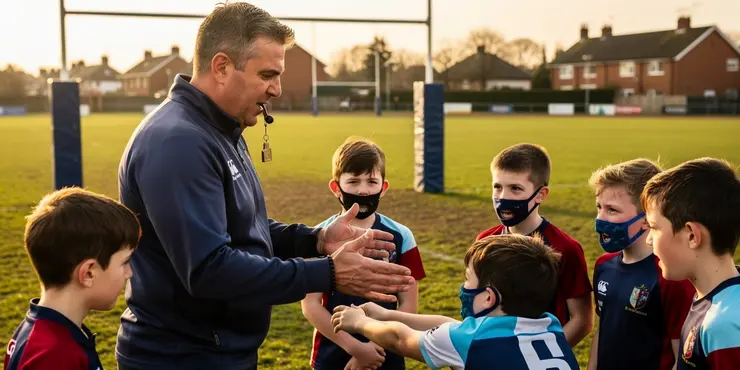
Find Help
More Items From Ergsy search
-
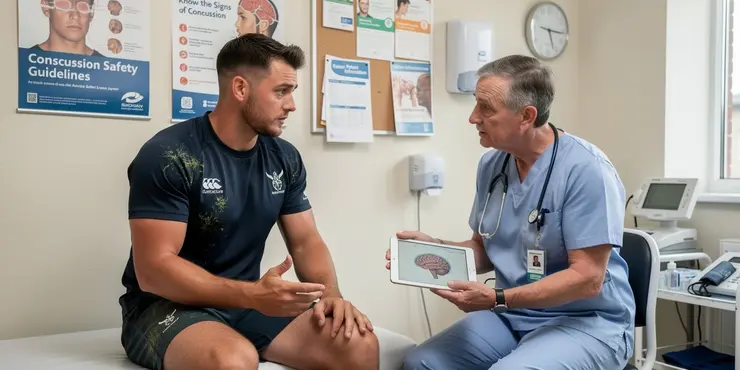
Are helmets required in rugby to prevent concussions?
Relevance: 100%
-
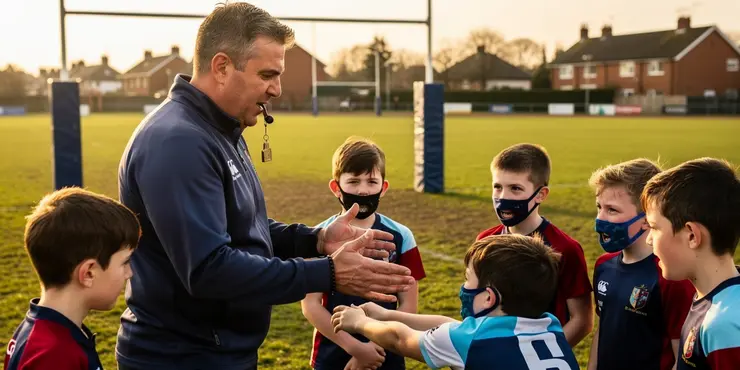
How can concussions be prevented in rugby?
Relevance: 97%
-
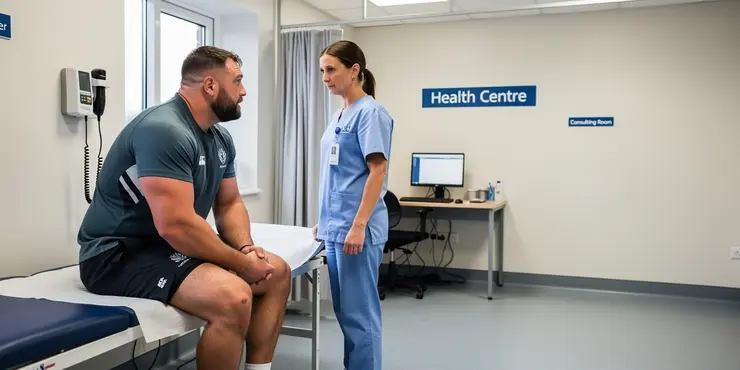
Are Concussions common in Rugby?
Relevance: 94%
-
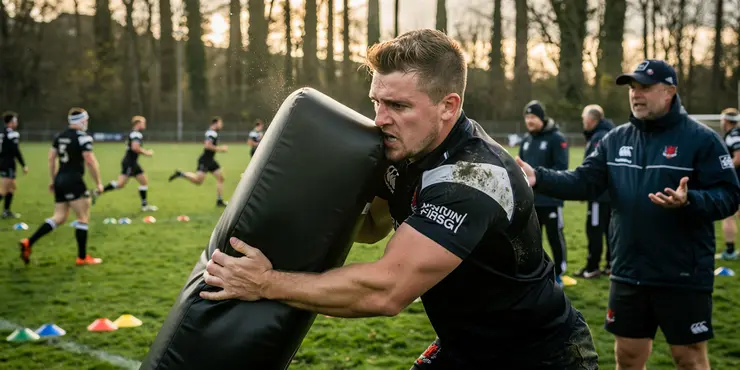
What causes concussions in rugby?
Relevance: 90%
-
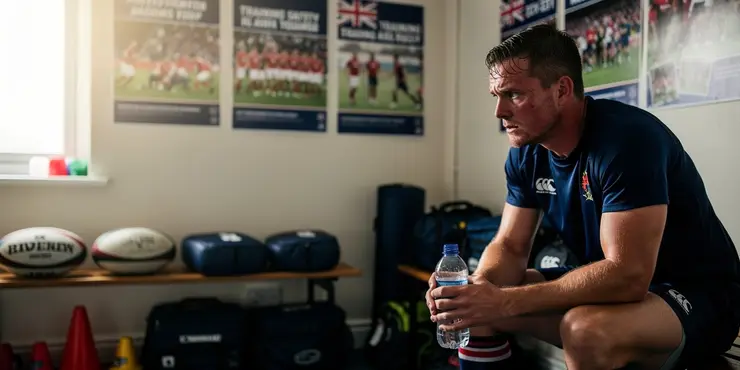
Is there a protocol for managing concussions in rugby?
Relevance: 85%
-
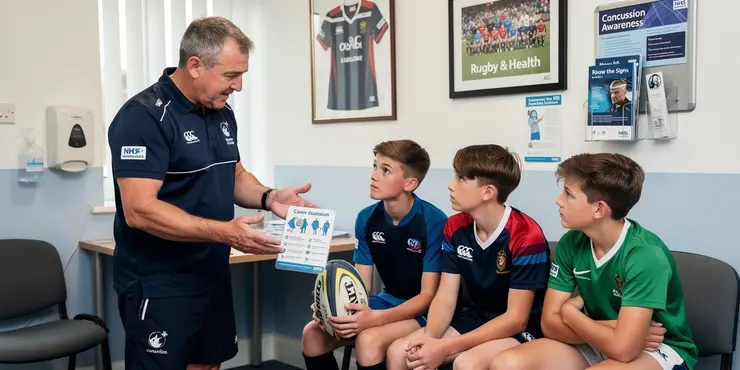
Is there a difference in concussion rates between amateur and professional rugby?
Relevance: 83%
-
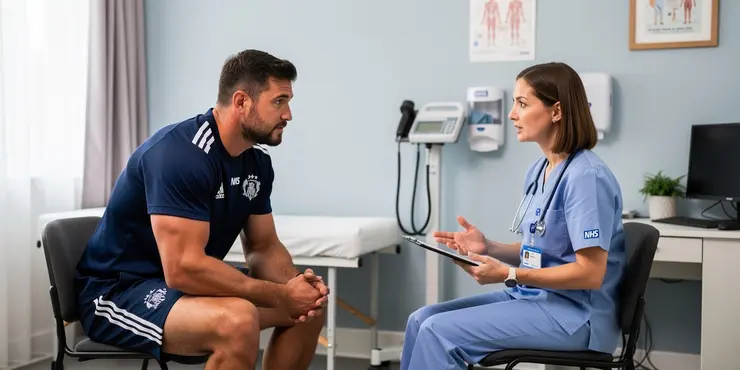
How do concussions impact long-term health in rugby players?
Relevance: 80%
-
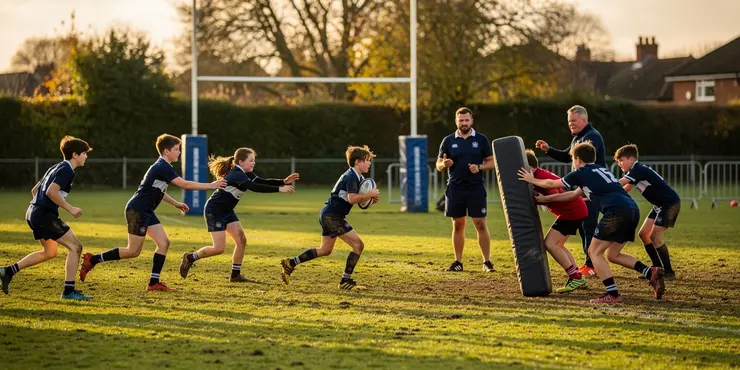
What age groups are most at risk for concussions in rugby?
Relevance: 79%
-
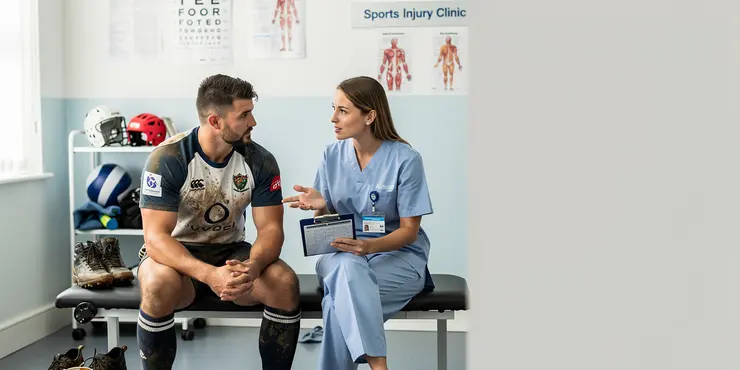
What support is available for rugby players who suffer concussions?
Relevance: 76%
-
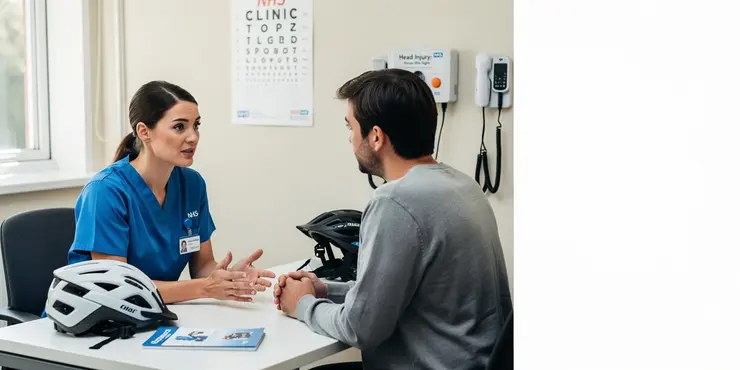
Is there any way to prevent concussions?
Relevance: 71%
-
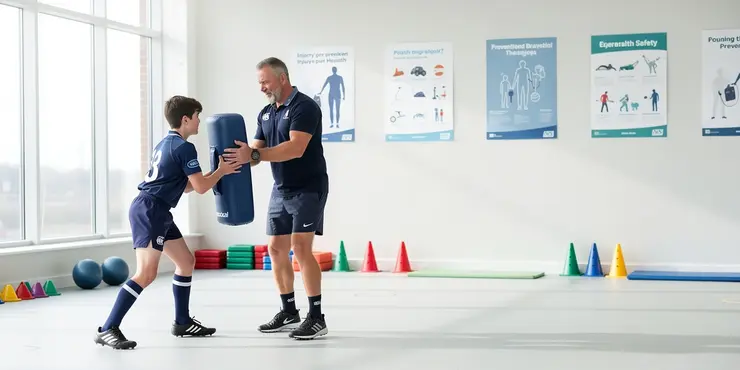
How can concussions be prevented?
Relevance: 71%
-
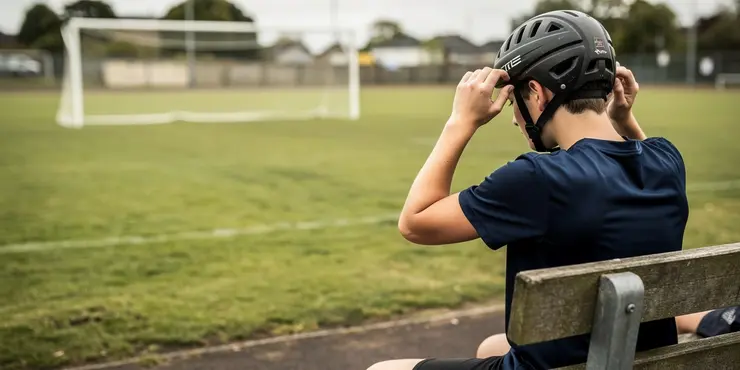
How can concussions be prevented?
Relevance: 69%
-
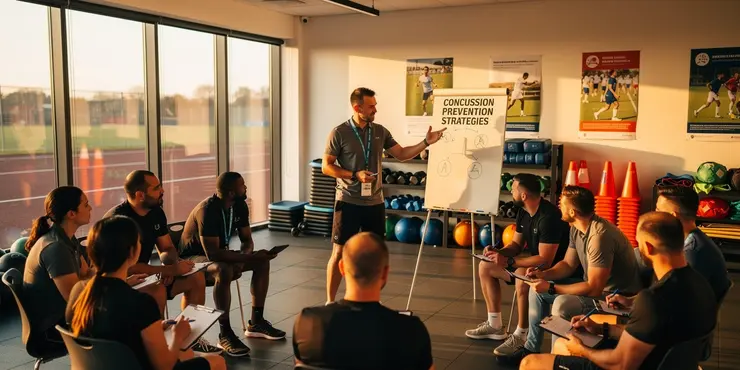
Is training available for coaches to help prevent concussions?
Relevance: 60%
-
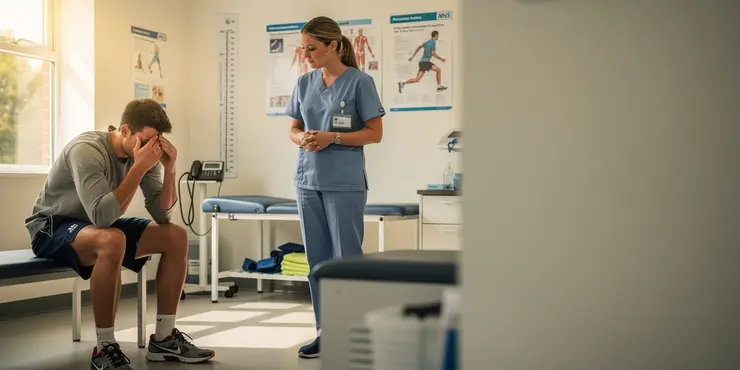
What is Concussion?
Relevance: 58%
-
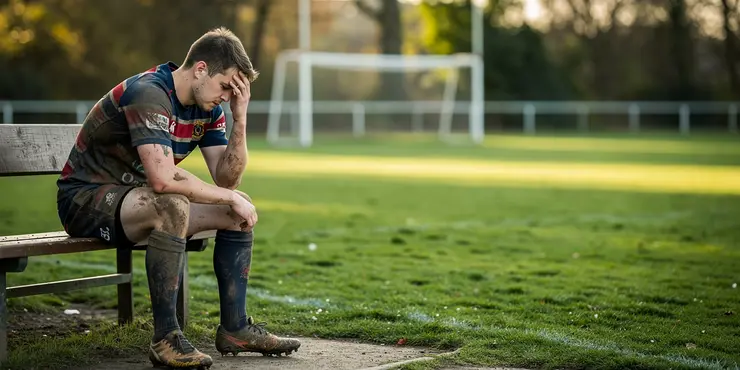
Can playing sports increase the risk of a concussion?
Relevance: 53%
-
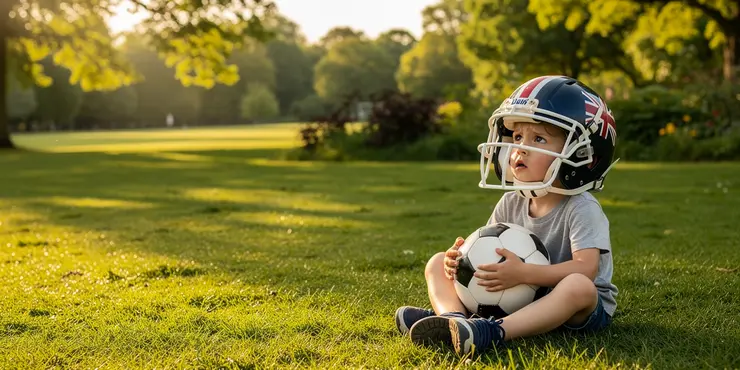
Are children more susceptible to concussions than adults?
Relevance: 51%
-
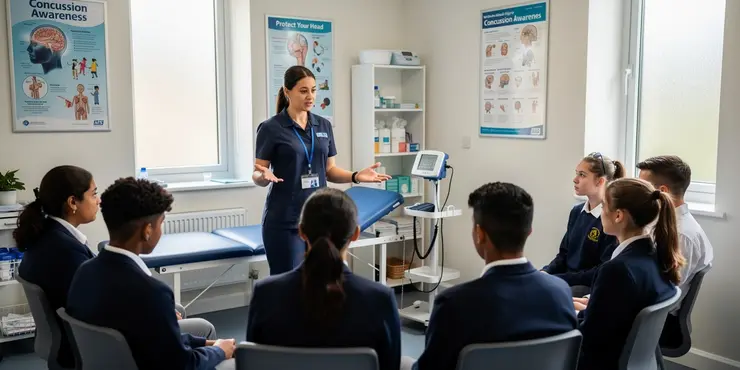
What role do schools play in managing concussions?
Relevance: 47%
-

How is a concussion diagnosed?
Relevance: 43%
-

Is headache a symptom of a concussion?
Relevance: 43%
-

How is a concussion diagnosed?
Relevance: 42%
-

Can concussions lead to mental health issues?
Relevance: 41%
-

Can a concussion cause memory problems?
Relevance: 41%
-

Is it safe to sleep after a concussion?
Relevance: 41%
-

What are common symptoms of a concussion?
Relevance: 40%
-

Is it safe to sleep after a concussion?
Relevance: 40%
-
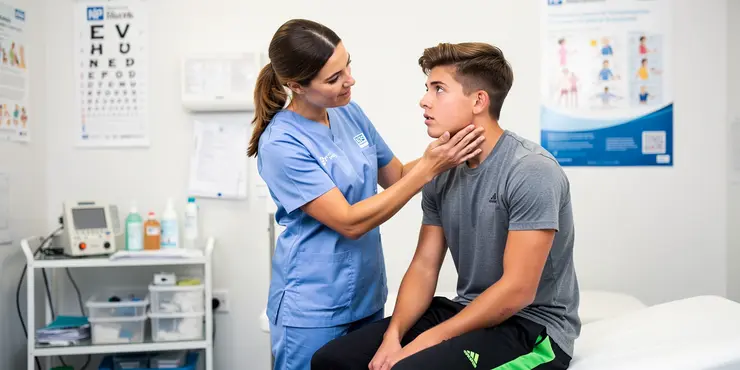
Can concussions occur without a direct blow to the head?
Relevance: 39%
-
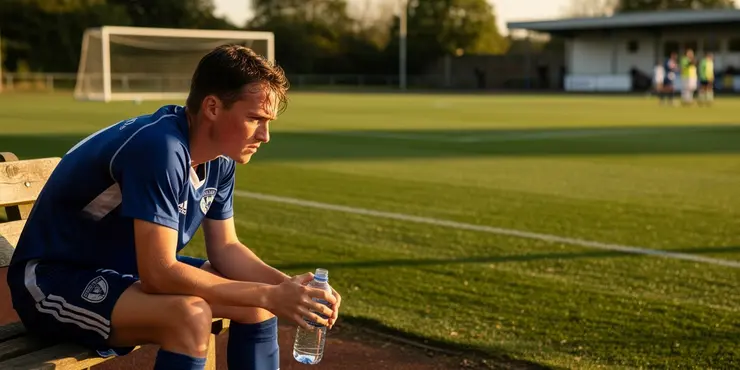
Can players return to play on the same day after a suspected concussion?
Relevance: 38%
-

When is it safe to return to normal activities after a concussion?
Relevance: 38%
-

Should people with a concussion avoid screens and technology?
Relevance: 37%
-
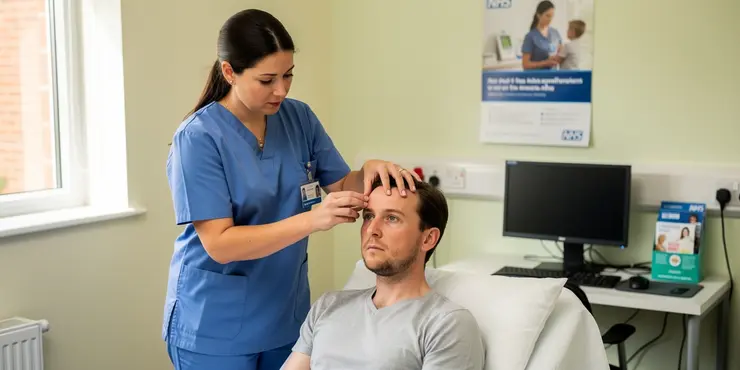
What immediate steps should be taken if someone has a concussion?
Relevance: 37%
-

When is it safe to return to normal activities after a concussion?
Relevance: 35%
-

Can hypotony be prevented?
Relevance: 18%
-
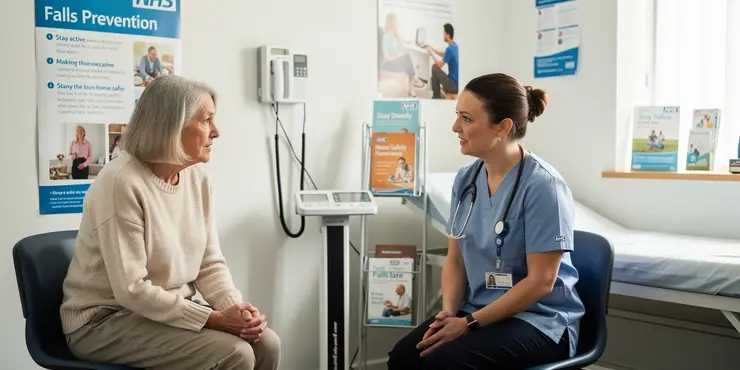
Falls Prevention Podcast
Relevance: 18%
-
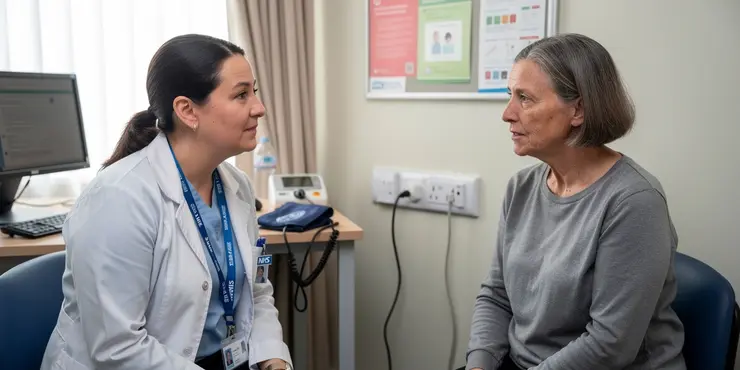
Can CFS be prevented?
Relevance: 18%
-

Can meningitis be prevented?
Relevance: 18%
-

Can gonorrhoea be prevented?
Relevance: 18%
-

Falls and Falls Prevention
Relevance: 18%
-

Can chickenpox be prevented?
Relevance: 18%
-

Can Rubella be prevented?
Relevance: 18%
-

Can sunburn be prevented?
Relevance: 18%
How Can Concussions Be Prevented in Rugby?
Improved Training Techniques
Ensuring players are taught safe playing techniques is essential. Coaches in rugby should focus on teaching players how to tackle and be tackled correctly. Heads Up Rugby, a programme that emphasizes keeping the head out of contact situations, can significantly reduce the risk of head injuries during play.Protective Gear
While no equipment can completely eliminate the risk of concussion, protective headgear can help. Advanced rugby headguards are designed to protect against lacerations and abrasions, but players should ensure their gear is certified and meets safety standards established by the World Rugby Association.Rule Enforcement and Modifications
Strict enforcement of rules aimed at minimizing dangerous play should be a priority in rugby leagues. Particular attention should be given to high tackles and other maneuvers that pose a high risk of head injuries. Modifying rules to lower tackle heights and heavily penalizing high tackles can also help mitigate the risks.Concussion Awareness and Protocols
Increasing awareness about the severity of concussions and the importance of proper management is crucial. Implementing rigorous concussion assessment protocols during games and practices can ensure that players showing signs of concussion are promptly and properly evaluated by medical professionals.Regular Health Monitoring
Athletes should undergo regular health assessments to help identify any pre-existing conditions that might increase their risk of concussion. Baseline testing before the season starts can provide valuable data if a concussion is suspected, aiding in more accurate diagnosis and recovery tracking.Community and Educational Campaigns
Raising awareness among players, coaches, and parents about concussions through community programmes can help foster a safer playing environment. Educational campaigns about the symptoms and risks associated with concussions can encourage a culture of safety and responsibility in rugby. By integrating these preventive measures, rugby can become a safer sport for all participants, reducing the incidence and impact of concussions.How to Stop Concussions in Rugby
Better Training
Players need to learn how to play safely. Coaches should teach them how to tackle the right way. "Heads Up Rugby" is a program that teaches players to keep their heads safe. This can help prevent head injuries.Protective Gear
While no gear can stop concussions completely, using headgear can help. Rugby headguards protect the head from cuts and bruises. Players should wear gear that is approved and safe to use.Following and Changing Rules
Rugby leagues should make sure everyone follows safety rules. This includes stopping high tackles that can cause head injuries. Changing rules to make tackling safer can also help.Knowing About Concussions
It’s important to know how serious concussions are. There should be checks during games if someone might have a concussion. Medical experts should look at players showing signs of concussion.Health Checks
Players should have regular health check-ups. This helps find any health issues before they play. Tests before and during the season can help if a concussion happens.Community and Learning
Teaching players, coaches, and parents about concussions makes rugby safer. Community programs and campaigns can help people learn how to stay safe. By using these safety steps, rugby can be safer for everyone, keeping players from getting hurt.Frequently Asked Questions
What equipment can help prevent concussions in rugby?
Wearing a properly fitted mouthguard and scrum cap can offer some protection, but no equipment can fully prevent concussions.
How can coaching reduce the risk of concussion in rugby?
Coaches can teach correct tackling techniques and ensure players understand how to safely engage in contact situations, which helps reduce concussion risks.
Are there specific rules in rugby designed to prevent concussions?
Yes, rules such as penalties for high tackles, restrictions on dangerous play, and guidelines on returning to play after a concussion help prevent head injuries.
What role do referees play in preventing concussions in rugby?
Referees enforce rules regarding safe play, penalise dangerous tackles, and can stop the game if they suspect a player has a head injury.
How does proper training reduce concussion risks in rugby?
Proper training helps players condition their bodies and learn techniques that reduce the likelihood of dangerous impacts, thus lowering concussion risk.
What is the importance of awareness programmes in preventing rugby concussions?
Awareness programmes educate players, coaches, and parents about concussion risks, symptoms, and prevention strategies, promoting safer play.
Can strengthening neck muscles help prevent concussions?
Yes, strengthening neck muscles can help absorb impact and reduce head movement during collisions, potentially lowering concussion risks.
What is the role of pitch conditions in rugby concussion prevention?
Playing on well-maintained pitches with appropriate cushioning can reduce the impact on players and decrease the risk of concussions.
How does player education contribute to concussion prevention in rugby?
Educating players about the signs and symptoms of concussions encourages them to report injuries and seek medical attention, preventing further harm.
Why is a gradual return-to-play protocol important after a concussion?
A gradual return-to-play protocol ensures that players fully recover before returning to rugby, preventing further injuries and complications.
Can changes in tackling laws prevent concussions in rugby?
Adapting tackling laws to lower the acceptable height for tackles can reduce the number of head impacts and potential concussions.
What is the role of team medical staff in preventing concussions?
Team medical staff are crucial in assessing potential head injuries, managing treatment, and advising on safe return to play to prevent further concussions.
Why is it important for players to report suspected concussions?
Timely reporting allows for proper medical evaluation and treatment, reducing the risk of more serious injuries and promoting recovery.
How can substitution rules help in concussion prevention in rugby?
Allowing temporary substitutions for players undergoing concussion assessments helps ensure that no players with potential concussions remain in play.
What impact does player fitness have on concussion prevention in rugby?
Higher levels of fitness improve physical resilience, decrease fatigue-related errors, and enhance players' ability to protect themselves in contact situations.
What gear can stop head injuries in rugby?
Rugby can be tough. You need special things to stay safe. Here's what you can use:
- Helmet: Helps protect your head.
- Mouthguard: Keeps your teeth and jaw safe.
- Padding: Soft pads for shoulders and chest.
Always wear your gear right. A coach or an adult can help you. Playing safe is important!
Wearing a mouthguard and scrum cap that fit you well can help keep you safe. But no gear can stop all head bumps.
How can coaching make rugby safer and help stop head injuries?
Coaches can show players how to tackle the right way. They help players learn to stay safe when playing. This can help stop head injuries.
Does rugby have rules to stop players from getting head injuries?
Yes, rules help keep players safe from head injuries. These rules include:
- Penalties for hitting too high.
- Stopping dangerous play.
- Guidelines for when you can play again after a head injury.
How do referees help stop head injuries in rugby?
Referees are important in rugby games.
They watch the game closely to make sure players play safely.
If players are rough and might hurt others, referees can stop them.
Referees can give warnings or send players off the field if needed.
Referees help keep everyone safe.
Referees make sure players follow the rules. They give penalties for dangerous moves. They can also stop the game if they think a player hurt their head.
How can good training make rugby safer and stop head injuries?
Good training helps players make their bodies strong and learn how to play safely. This can help stop them from getting hurt in the head.
Why are awareness programmes important to stop rugby concussions?
Awareness programmes help people learn about concussions. A concussion is a type of head injury.
These programmes teach players, coaches, and parents how to play rugby safely. They show how to spot a concussion and what to do if someone gets hurt.
Knowing more helps everyone be safer. We can use tools like videos and posters to learn in a fun way.
Remember to always ask for help if you're not sure. It's okay to have questions!
Awareness programs help players, coaches, and parents learn about concussions. They teach what can happen, how to spot signs, and ways to stay safe. This helps everyone play safely.
Can strong neck muscles stop head injuries?
Yes, making neck muscles stronger can help keep your head safe. It can stop your head from moving too much in hits and may help prevent head injuries.
How do rugby fields help stop head injuries?
When you play on good fields that are soft, it is safer. It can stop players from getting hurt like when they hit their heads.
How can teaching rugby players help stop head injuries?
Learning about head injuries can keep rugby players safe. They can know what to do to protect their heads.
- Coaches teach players how to tackle correctly.
- Players learn to watch out for signs of head injury.
- Wearing the right headgear can help keep them safe.
- If players feel hurt, they should tell someone right away.
Tools like pictures and videos can help players learn better. Talking to a coach or using fun apps can help too.
Teaching players about how to spot signs of a concussion helps them understand when they might be hurt. This way, they can tell someone and see a doctor to stay safe.
Why is it important to go back to playing sports slowly after a concussion?
A step-by-step plan helps players get better before playing rugby again. This keeps them safe and stops them from getting hurt again.
Can new rules about tackling stop head injuries in rugby?
Changing the rules so players must tackle lower can help stop head hits and keep people safer.
What do team doctors do to stop head injuries?
The team doctors and nurses are very important. They check if a player hurts their head. They help the player get better and tell them when it is safe to play again. This stops more head injuries.
Why should players tell someone if they think they have a concussion?
If you think you might have a concussion, it is important to tell someone. A concussion is an injury to the brain. You get it from a hard hit to the head. It can make you feel dizzy, confused, or sleepy.
Telling someone, like a coach or a doctor, helps you get the right care. They can check if you are okay and tell you what to do next.
If you play again too soon with a concussion, you can get hurt even more. Rest is important to get better.
Caring for your brain is very important. If you have a concussion, remember to:
- Tell an adult
- Rest and follow doctor's advice
Reporting injuries quickly helps doctors check and treat you. This can stop worse injuries and help you get better.
How can substitution rules help stop concussions in rugby?
Substitution rules in rugby mean players can take a break or switch if they get hurt. It's important because:
- Players can rest if they feel dizzy or hurt.
- New players can join in and play safely.
- Everyone gets time to heal and stay safe.
Tools that might help:
- Coaches and referees should watch for hurt players.
- Teams should learn about concussion signs.
- Using a whistle or flag to stop the game if a player is hurt.
Games are safer when everyone knows the rules and looks out for each other.
Letting players take a break if they might have a head injury is good. It means players who might be hurt don’t have to keep playing.
How does being fit help rugby players avoid head injuries?
Being fit helps people stay strong and not get tired as quickly. It also helps players avoid making mistakes when they are tired. When players are fit, they can keep themselves safe when they bump into other players.
Useful Links
This website offers general information and is not a substitute for professional advice.
Always seek guidance from qualified professionals.
If you have any medical concerns or need urgent help, contact a healthcare professional or emergency services immediately.
Some of this content was generated with AI assistance. We’ve done our best to keep it accurate, helpful, and human-friendly.
- Ergsy carfully checks the information in the videos we provide here.
- Videos shown by Youtube after a video has completed, have NOT been reviewed by ERGSY.
- To view, click the arrow in centre of video.
- Most of the videos you find here will have subtitles and/or closed captions available.
- You may need to turn these on, and choose your preferred language.
- Go to the video you'd like to watch.
- If closed captions (CC) are available, settings will be visible on the bottom right of the video player.
- To turn on Captions, click settings .
- To turn off Captions, click settings again.
More Items From Ergsy search
-

Are helmets required in rugby to prevent concussions?
Relevance: 100%
-

How can concussions be prevented in rugby?
Relevance: 97%
-

Are Concussions common in Rugby?
Relevance: 94%
-

What causes concussions in rugby?
Relevance: 90%
-

Is there a protocol for managing concussions in rugby?
Relevance: 85%
-

Is there a difference in concussion rates between amateur and professional rugby?
Relevance: 83%
-

How do concussions impact long-term health in rugby players?
Relevance: 80%
-

What age groups are most at risk for concussions in rugby?
Relevance: 79%
-

What support is available for rugby players who suffer concussions?
Relevance: 76%
-

Is there any way to prevent concussions?
Relevance: 71%
-

How can concussions be prevented?
Relevance: 71%
-

How can concussions be prevented?
Relevance: 69%
-

Is training available for coaches to help prevent concussions?
Relevance: 60%
-

What is Concussion?
Relevance: 58%
-

Can playing sports increase the risk of a concussion?
Relevance: 53%
-

Are children more susceptible to concussions than adults?
Relevance: 51%
-

What role do schools play in managing concussions?
Relevance: 47%
-

How is a concussion diagnosed?
Relevance: 43%
-

Is headache a symptom of a concussion?
Relevance: 43%
-

How is a concussion diagnosed?
Relevance: 42%
-

Can concussions lead to mental health issues?
Relevance: 41%
-

Can a concussion cause memory problems?
Relevance: 41%
-

Is it safe to sleep after a concussion?
Relevance: 41%
-

What are common symptoms of a concussion?
Relevance: 40%
-

Is it safe to sleep after a concussion?
Relevance: 40%
-

Can concussions occur without a direct blow to the head?
Relevance: 39%
-

Can players return to play on the same day after a suspected concussion?
Relevance: 38%
-

When is it safe to return to normal activities after a concussion?
Relevance: 38%
-

Should people with a concussion avoid screens and technology?
Relevance: 37%
-

What immediate steps should be taken if someone has a concussion?
Relevance: 37%
-

When is it safe to return to normal activities after a concussion?
Relevance: 35%
-

Can hypotony be prevented?
Relevance: 18%
-

Falls Prevention Podcast
Relevance: 18%
-

Can CFS be prevented?
Relevance: 18%
-

Can meningitis be prevented?
Relevance: 18%
-

Can gonorrhoea be prevented?
Relevance: 18%
-

Falls and Falls Prevention
Relevance: 18%
-

Can chickenpox be prevented?
Relevance: 18%
-

Can Rubella be prevented?
Relevance: 18%
-

Can sunburn be prevented?
Relevance: 18%


